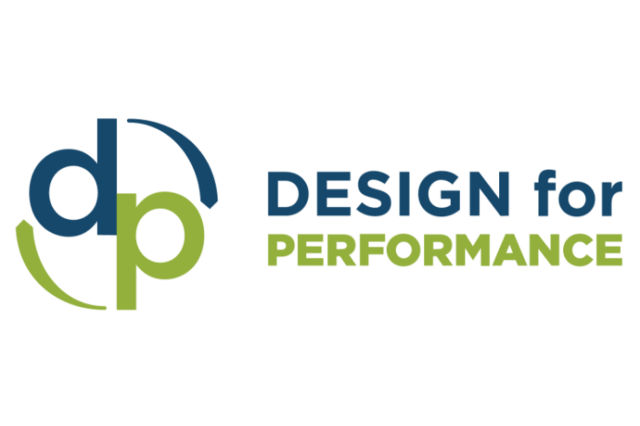Industry Engagement with the Design for Performance scheme ramps up, with Bryden Wood, Elementa Consulting, Inkling and Thornton Reynolds joining as Delivery Partners
16 December 2020Industry Engagement with the Design for Performance scheme ramps up, with Bryden Wood, Elementa Consulting, Inkling and Thornton Reynolds joining as Delivery Partners
16 December 2020The Better Buildings Partnership is delighted to announce the joining of four new Delivery Partners to the Design for Performance (DfP) Scheme. Committed to delivering buildings and upskilling in line with the DfP approach, the BBP are confident that Bryden Wood, Elementa Consulting, Inkling and Thornton Reynolds will add great value to the scheme. This latest addition brings the total of BBP delivery partners up to 25.
Bryden Wood is a tech-powered design company, committed to designing and building energy efficient and sustainable buildings, reducing whole life carbon in order to achieve the government’s ambitious net zero carbon targets. Their Building Physics and Sustainability Team does that by using analytical modelling techniques to improve and refine buildings’ performance. Their goal is to fine tune the building orientation, fabric and façade design in order to minimise the amount of intervention required by Mechanical and Electrical Engineering systems. Bryden Wood’s belief is that this application of lean design, a core part of their integrated ‘Design to Value’ approach, is essential to the provision of truly sustainable buildings.
Helen Hough, Head of Building Physics and Sustainability at Bryden Wood said: “It’s really positive to see DfP lead the way in actively encouraging reductions in operational energy demand and consumption and providing a pathway to tackling the performance gap. We actively support LETI’s work in setting industry benchmarks for operational energy performance. The DfP initiative will provide further industry guidance on how to meet net zero carbon benchmarks at both design stage and, perhaps more importantly, in operation. The initiative will also help stimulate upskilling of the industry, both within client and facilities management teams but also among the design and building simulation community.”
Elementa Consulting, a member of the Integral Group, has joined The Design for Performance (DfP) Buildings Better Partnership as a delivery partner. As one of the three founding signatories to WGBC’s Net Zero Carbon buildings commitment, to make all buildings net zero by 2050, Elementa is dedicated in tackling the ‘’performance gap’’, which exists from the original design intent to the actual performance in- use. Elementa bring global knowledge of best practices around the globe in net zero design and roadmapping. They are also proud founders of The London Energy Transformation Initiative (LETI), which was established as a collaborative of built environment professionals to put London on the path to a zero-carbon future.
Nathan Millar, Sustainability Principal at Elementa Consulting said: ‘’Initiatives such as DfP and LETI are crucial in ensuring that the performance gap is tackled through providing solutions to reduce whole life carbon (an area we have dedicated extensive research within MEP). This includes supporting net zero carbon buildings beyond design but throughout the buildings lifecycle. Elementa Consulting are proud to be DfP partners and are committed to support initiatives, education and awareness in our joint fight against the climate crisis.”
Inkling LLP is a UK market-leading Building Physics consultancy founded in 2011 with a mission to help make buildings more comfortable and energy efficient. Inkling has extensive expertise in simulation building design and building performance. As well as consultancy work, Inkling partners have extensive academic and research experience and have contributed to a wide range of industry publications.
Inkling Partner Susie Diamond is co-leading the London Energy Transformation Initiative (LETI) modelling guide workstream to help upskill the modelling community. This workstream will produce guidance to support those carrying out energy modelling for all types of buildings, helping achieve the aims of the LETI Climate Emergency Design Guide including in-use EUI targets, and signposting the best resources.
Claire Das Bhaumik, Partner at Inkling said: “Inkling are excited to contribute to the Design for Performance (DfP) project as it offers the opportunity to really address the operational energy use and carbon emissions of buildings and to close the design circle to understand better which approaches really work. It showcases the incredible power of building modelling to stress-test designs and optimise building HVAC systems and controls at the design stage and then to carry this through to the operation and in-use stages, aiding commissioning and fine-tuning."
Established in 2009 Thornton Reynolds is a firm built on commitment to good design. Promoting the intelligent design of building services to deliver usable and durable built environments is an intrinsic driver of the firm’s activities in all sectors of operation.
Thornton Reynolds believe that sustainable solutions must be appropriate and effective in both performance and cost terms. They embrace new ideas and new technology and pragmatically apply these things only where they bring a genuine benefit. Thornton Reynolds enjoy solving problems to produce elegant and simple solutions and their pursuit of simplicity and application of compatible systems leads to inherently reliable solutions.
Tim Thornton, Director at Thornton Reynolds said: “Thornton Reynolds are delighted to be part of a formalised scheme which acknowledges the importance of good design for sustainable and efficient spaces. NABERS UK provides structure and benchmarking to the process and outcome of that design effort. Design for Performance will be a valuable tool in establishing the design principles necessary to achieve a low carbon outcome at the earliest stages of the design process.”
Learn more about DfP and its partners here.
